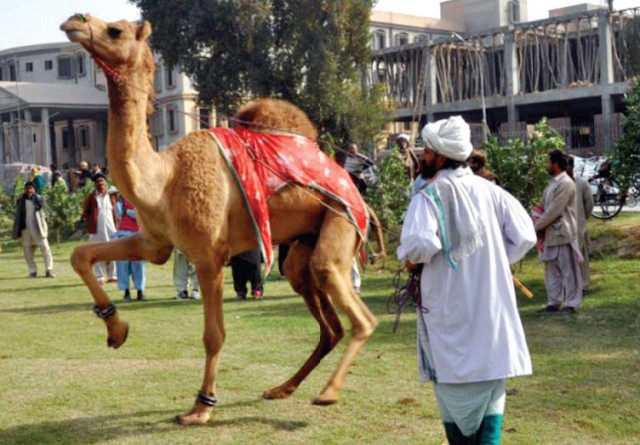Bringing up dromedaries: For the love of camels!
Rapid urbanisation is threatening the colourful culture of Cholistan desert.

Bringing up dromedaries: For the love of camels!
“Camels are like my children and they reciprocate my love,” says Jatt, a resident of Chak No 29 BC, near Yazman, some 50 kilometres from Bahawalpur.
Jatt’s empathy for camels started when he was 18 and his first wife divorced him following a family dispute. “I was heart-broken when my wife, Rehana, left me. I was feeling lonely – but since she loved our camels, I started loving them, too, in her memory,” he says with a glint in his eyes.
It’s believed that although animals are cognitive creatures, feeling joy, love, fear and pain like humans, but they cannot grasp the spoken word. But for Jatt, his animals’ eyes have the power to speak a great language.
“God has gifted me with a quality to understand their language. I know what they need,” says Jatt as he kisses his camel in the backyard of his modest home. “I’ll transfer this knowledge to my children to make sure that when I’m dead they communicate with my animals.”
Jatt is a father of six children – four of them daughters, but he confesses he has 12 children. “My four camels – Sohna, 14, Saiyan, 5, Patasa, 4, and Heera, 2 – are also my children. Another two camels died of illness around three years ago,” adds Jatt in a sombre voice.
Jatt says his children also consider his camels their siblings. “You know my daughters proudly say that they have six brothers,” he says. The first thing Jatt does in the morning is to visit his animals in the backyard and kiss them.
However, it’s not easy for a poor man like Jatt to properly feed his four dromedaries. He needs Rs2,000 daily for their feed. “At times, my family has to go hungry but we make sure that the camels are fed properly,” says Jatt.
Jatt’s camels are very intelligent. They can dance to folk music and perform different tricks at their master’s orders. For their intelligence, they are popular in the entire southern Punjab region. And Jatt is often invited to perform at private functions, in addition to cattle shows and village fairs.
“People enjoy the performance of my animals,” says Jatt but he doesn’t get enough reward money to make ends meet since the camels are his only source of income. His animals have performed at cattle shows across the country, including in Islamabad, Lahore, Multan, Bahawalpur and Rahim Yar Khan.
On average, a camel lives around 30 years. “When a camel reaches his age limit and stops eating fodder, I feed him porridge and milk,” says Jatt. “A poor man like me cannot afford to feed them but God helps me to arrange for their food.”
Jatt believes that the rapid urbanisation is threatening the colourful culture of Cholistan desert, to which the camel is an indispensible part. Jatt appeals to the Punjab chief minister to take immediate steps for the preservation of this culture and save it from extinction.
Jatt is neither an animal rights crusader nor is he a vegetarian. But he loves his camels and wants to spend every moment of his life with his endeared animals.
Published in The Express Tribune, January 30th, 2012.



















COMMENTS
Comments are moderated and generally will be posted if they are on-topic and not abusive.
For more information, please see our Comments FAQ